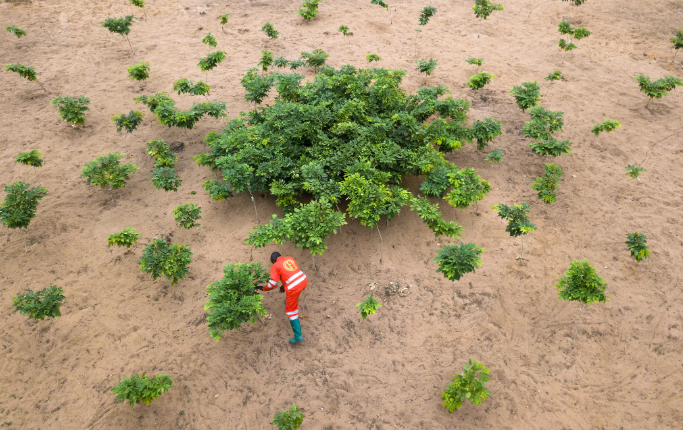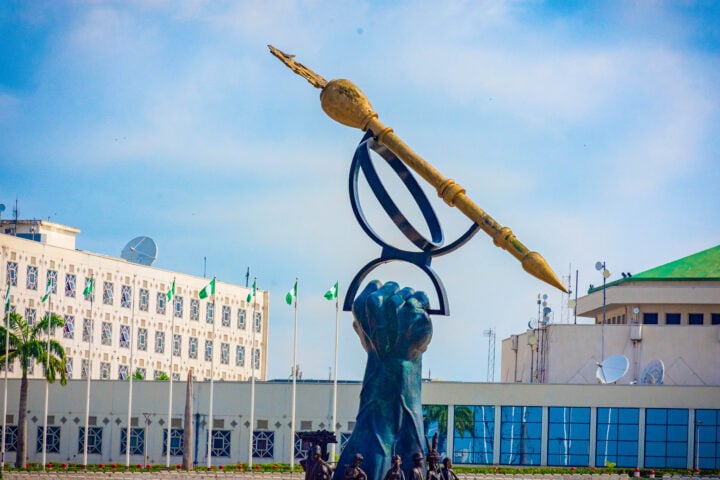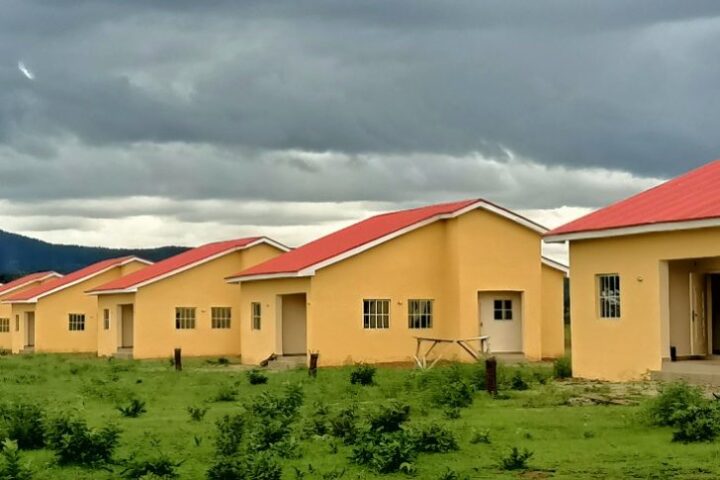BY DARE AKOGUN
As world leaders gathered at the Munich Security Conference 2025 (MSC 2025) to deliberate on pressing global security threats, a critical but often overlooked issue – land restoration emerged as a pivotal strategy for fostering peace and stability.
Experts at the MSC 2025 session, “Conversation on Land Restoration and Security,” emphasised the urgent need to address land degradation as a means of preventing conflicts and mitigating displacement.
The session, organized by the United Nations Convention to Combat Desertification (UNCCD) in collaboration with Adelphi research, provided a platform for decision-makers to explore the connection between environmental degradation and security challenges.
Advertisement
Experts underscored that competition over dwindling natural resources, exacerbated by climate change, has intensified global instability, making land restoration an essential component of conflict prevention strategies.
UNCCD Executive Secretary Ibrahim Thiaw described land degradation as more than an environmental crisis, labelling it a significant security threat.
“Over 3 billion people depend on land for survival, yet up to 40 percent of global land is already degraded, worsening food and water scarcity, economic instability, and forced displacement.
Advertisement
Governments, security organisations, and financial institutions must recognise that restoring land is restoring peace. Without urgent action, competition over shrinking resources will continue to drive instability and migration,” Thiaw warned.
The UNCCD’s role has evolved significantly from merely combating desertification to tackling the broader implications of land degradation, including its effects on food security, biodiversity, and climate stability.
According to Jochen Flasbarth, State Secretary at the German Federal Ministry for Economic Cooperation and Development (BMZ), these challenges pose a serious threat to global peace and security.
“To effectively respond, the agenda on land, peace, and security must be elevated on the global stage, with a strong emphasis on integrated cooperation at international, regional, and national levels,” Flasbarth stated.
Advertisement
Land Degradation: A Security Threat
The “Ground for Peace” report, unveiled at the conference, shed light on the severe security risks posed by land degradation. Key findings from the report include:
Land degradation exacerbates conflict by intensifying competition over food, water, and other resources.
60 percent of ecosystem services in conflict-affected regions have already been degraded, making recovery even more challenging.
Advertisement
Despite land restoration’s role in reducing conflict risks, only 10 percent of global climate finance (2015-2024) has been allocated to such efforts. The economic cost of land degradation is estimated at $6.3 trillion annually, significantly impacting global stability.
Environmental peacebuilding initiatives, such as transboundary land restoration, create shared incentives for cooperation and long-term stability.
Advertisement
Strengthened governance and land tenure rights are essential to ensuring that land restoration contributes to lasting peace and resilience.
According to Dr. Beatrice Mosello, senior advisor at Adelphi Research, the report provides compelling evidence that sustainable land management reduces competition over resources and fosters cooperation.
Advertisement
“Urgent action is needed to scale up financing and policy support, ensuring that land restoration becomes a key tool for peacebuilding worldwide,” Mosello said.
Experts at MSC 2025 highlighted transboundary land restoration as a crucial mechanism for fostering cross-border cooperation and mitigating disputes over shared natural resources.
Advertisement
By promoting sustainable land management, governments and communities can enhance trust, strengthen regional stability, and reduce resource-driven conflicts.
One such initiative is the Peace Forest Initiative (PFI), launched by the UNCCD in partnership with the Korea Forest Service.
The PFI supports environmental restoration in fragile and conflict-prone regions by rehabilitating degraded lands and forests, fostering trust, and reducing tensions.
Successful large-scale restoration projects further demonstrate the potential of land rehabilitation in promoting regional cooperation and economic resilience.
The Great Green Wall initiative in Africa has shown how combating desertification can enhance livelihoods and stability. Similarly, the Kavango Zambezi Transfrontier Conservation Area (KAZA) in Southern Africa has facilitated joint resource management across Angola, Botswana, Namibia, Zambia, and Zimbabwe. In Latin America, the Cordillera del Cóndor Transboundary Conservation Corridor, established as part of a peace agreement between Ecuador and Peru, exemplifies how environmental restoration can support reconciliation and long-term stability.
However, experts cautioned that these initiatives require robust governance frameworks and sustained financial commitments to remain viable in the long run.
Saudi Arabia’s Minister of State for Foreign Affairs, Adel bin Ahmed Al-Jubeir, stressed the wide-reaching consequences of land degradation. “Land degradation leads to conflicts, violence, extremism, terrorism, migration, political instability, and economic turmoil.
If we had paid attention to this issue at the outset, it would have cost us a fraction of the resources we now need to address its consequences,” he noted.
Nigeria, like many countries facing severe land degradation challenges, stands to benefit significantly from increased investments in land restoration.
Across the country, desertification has worsened conflicts between farmers and herders, fueled displacement, and exacerbated food insecurity. Experts argue that proactive restoration efforts could mitigate these challenges, reducing migration pressures and promoting economic resilience.
The “Ground for Peace” report calls for immediate investments in scalable land restoration solutions, such as agroforestry, reforestation, and water conservation. These measures, if expanded, could help stabilise fragile regions, reduce resource-driven conflicts, and foster economic development.
Nigeria’s Role in Global Land Restoration Efforts
As a country grappling with severe land degradation and desertification, Nigeria has the potential to play a leading role in implementing land restoration initiatives.
The country is a key participant in the African-led Great Green Wall project, which aims to restore 100 million hectares of degraded land across the Sahel by 2030. However, funding constraints and weak policy implementation have slowed progress.
Experts suggest that Nigeria should leverage global initiatives such as the UNCCD Peace Forest Initiative and transboundary conservation projects to strengthen environmental peacebuilding efforts.
Stronger land governance frameworks, increased funding for sustainable land management, and community-driven restoration programs could significantly contribute to national and regional stability.
The discussions at MSC 2025 made it clear that land restoration is not just an environmental imperative but a critical security measure.
The “Ground for Peace” report provides compelling evidence that investing in land rehabilitation can reduce conflicts, enhance cooperation, and build economic resilience.
As global leaders return to their respective countries, the challenge remains: Will they act swiftly to integrate land restoration into their national security policies? For Nigeria and other nations facing severe land degradation, the answer may determine the future of their peace and stability in the years to come.
Dare Akogun is an Ilorin-based environmental journalist. He can be reached via [email protected]
Views expressed by contributors are strictly personal and not of TheCable.
Add a comment









